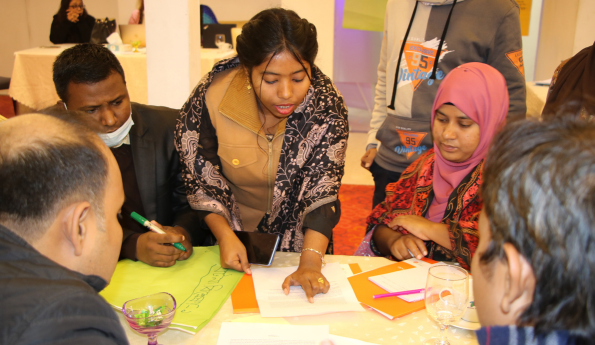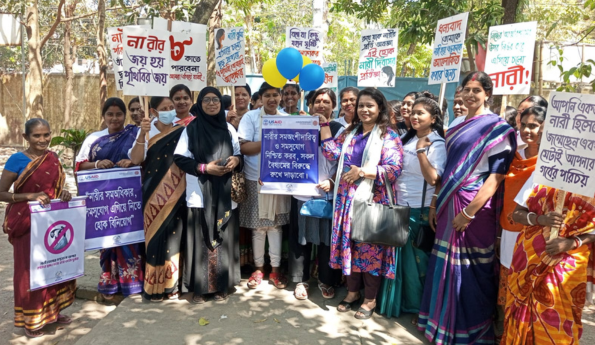By Anna Beebe, Intern
Counterpart promotes the protection of human rights worldwide. In protecting and promoting human rights, interventions at the intersection of gender and social justice are crucial. Examining gender as a cross cutting topic in protecting human rights allows practitioners to not only address power imbalances rooted in gender norms, but also how development issues, such as access to clean water, impact marginalized populations differently.
Counterpart’s USAID-funded Promoting Advocacy and Rights (PAR) program in Bangladesh supports civil society to address four citizen-identified, priority advocacy issues: gender-based violence, drug abuse, unplanned urbanization, and environmental pollution. While these issues impact all genders, women and girls are disproportionately affected. To help expand the capacity of our partner CSOs to advocate for solutions to these issues, there must be strong and growing discourse centered around gender and human rights.
Often, gender norms in Bangladesh limit women’s freedom to escape dangerous situations, such as domestic violence. Traditional Bangladeshi social institutions place family responsibility on women, which often influences women to stay home and take care of domestic responsibilities, such as cooking, cleaning, and caring for children. As of 2019, women make up approximately 36% of the total workforce, even though they make up 49% of the total population. Because of this, women are often dependent on their male partners for an income, which means leaving their household in times of danger is often not feasible.
Even as policy is passed to promote gender equality, women cannot fully practice their freedoms without enforcement of law. In PAR’s Gender-Based Violence Baseline Survey from December 2020, 69% of respondents expressed that the government is not actively implementing policy that is in place to protect women. Because of this, PAR consortium members must include women and girls in programming and advocacy efforts. When there is stronger female representation in activism efforts that address women’s issues, it will not only support women to advocate for their rights but also gives them a platform to address issues at the government level.
In addition to enforcement, there also needs to be a shift in discourse that no longer stigmatizes women’s experiences with drug abuse and domestic violence. This stigma often creates tension between family members, which can lead to women being shunned or isolated from their loved ones, and even the rest of the community. PAR grantees must provide workshops that support participants with methods to dismantle harmful gender norms so that women are free to enjoy the rights that Bangladesh written policy claims to protect. As long as society continues to trivialize the experiences of women, equality will never be reached.





